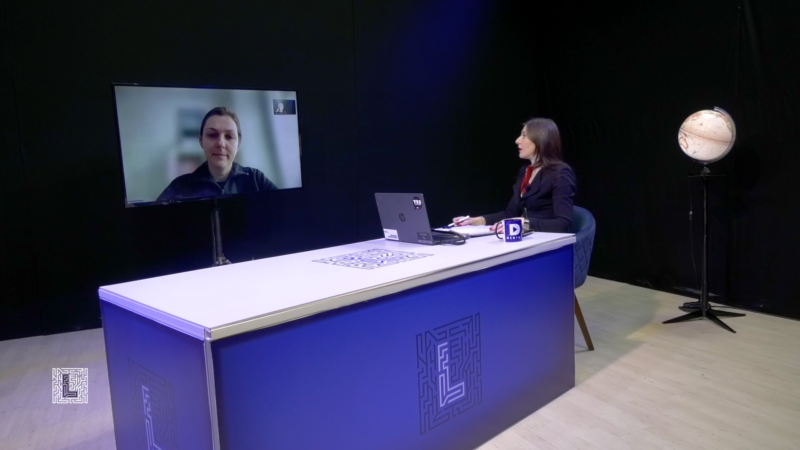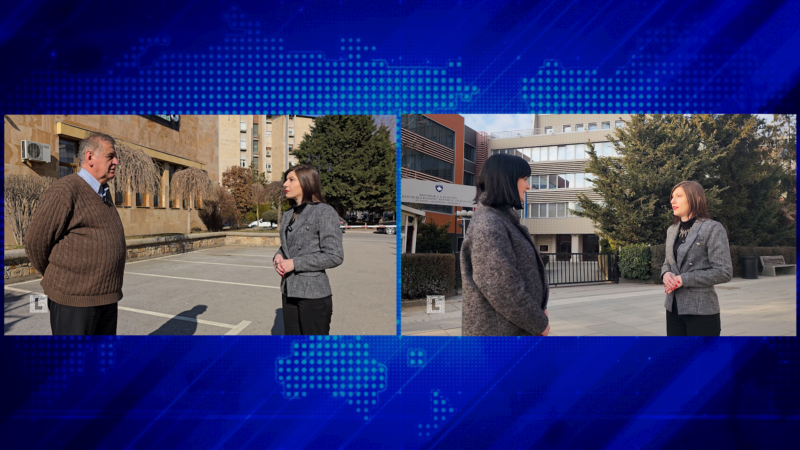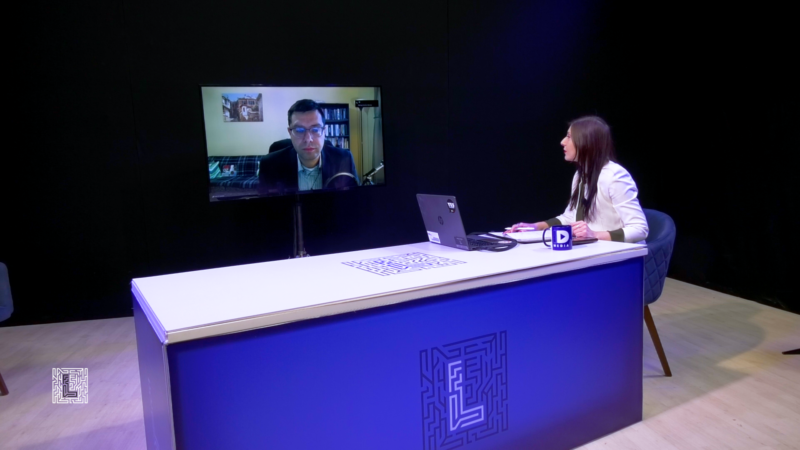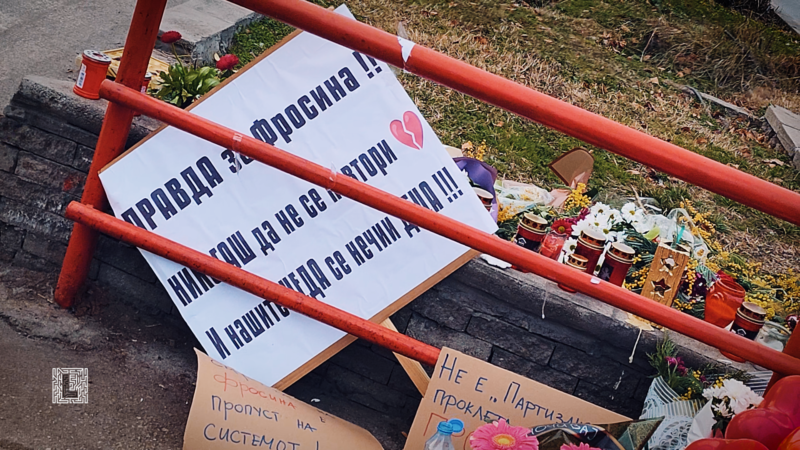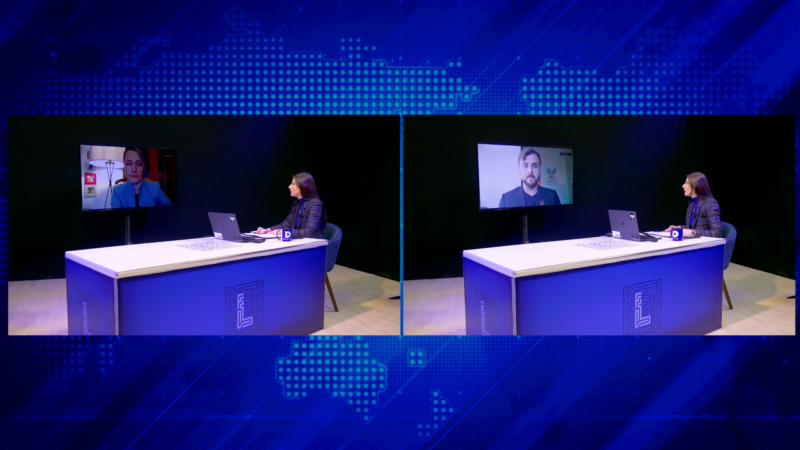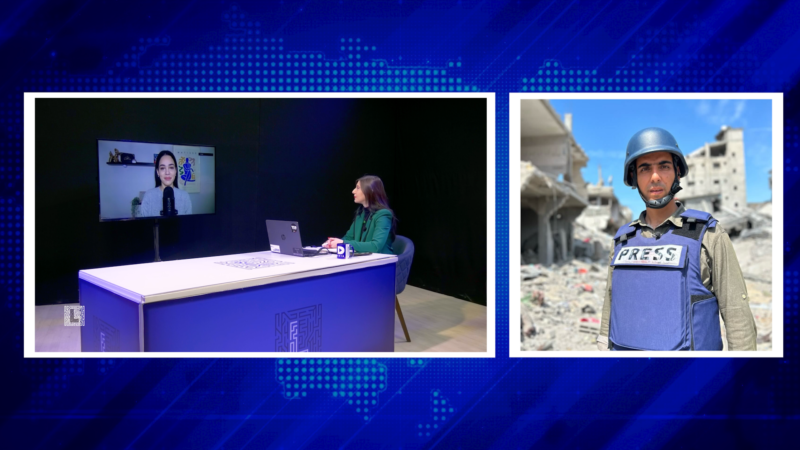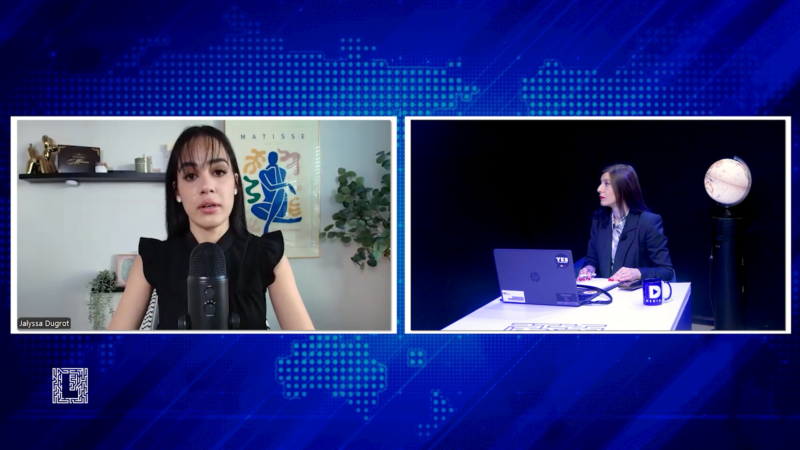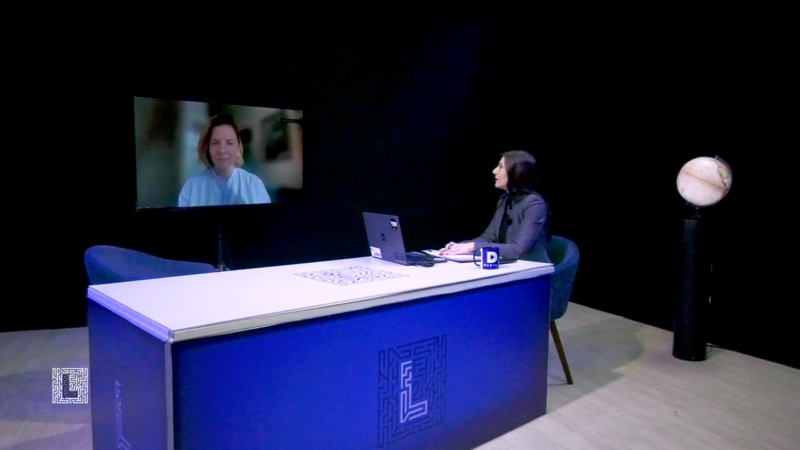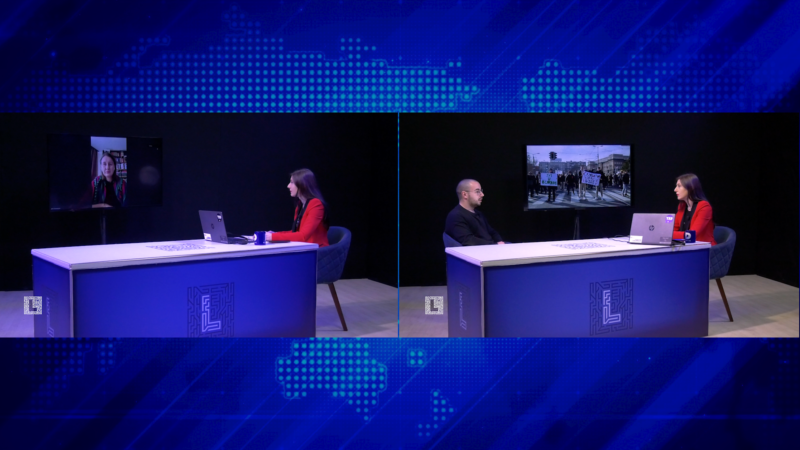LABYRINTH
Kurti faces two scenarios – Coalition with the opposition or with minorities
Labyrinth in Kosovo
Albin Kurti’s party, Self-Determination, received the most votes in Kosovo’s regular parliamentary elections. These are the first regular elections since Kosovo’s independence in 2008. The current prime minister will have to form a coalition if he wants to retain the prime minister’s office. Analysts we spoke say that Kurti has two options, either a coalition with the opposition or with minorities. Negotiations are just beginning. In the campaign, which passed peacefully, the focus of politicians was mainly on ethnic issues, while the focus of the people, however, is on real social problems such as the economy, emigration and corruption. We talk to journalist Vjosa Cerkini in Pristina about all these issues, as well as about Kosovo’s international relations under the leadership of Albin Kurti. In Mitrovica, we spoke with political analyst Nexhmedin Spahiu, and in North Mitrovica, we asked citizens what they think about these elections.
Will the judicial system and international law prevent Trump's controversial ideas?
Interview with Professor Ivan Dinev from the University of Cincinnati
The new US President, Donald Trump, continues to shock the world. The idea of moving the residents of Gaza to another country has met with great international discontent. The decision to close the USAID organization, which grants grants to many sectors around the world, has also caused discontent and protests. We talk about these topics, as well as Trump's trade policies, with Professor Ivan Dinev Ivanov, who teaches at the University of Cincinnati. The professor believes that the judicial system will prevent Trump from deporting students who protested the situation in Gaza.
Граѓаните на улица против корупција и неказнивост
Голем број граѓани се собраа на Партизанска, на местото кадешто беше прегазена младата Фросина да побараат правда. Протестот продолжи до Собранието и заврши пред судовите. Граѓаните со молк изразија сочувство и голем дел од нив рекоа дека ќе продолжат да протестираат додека правдата не биде задоволена. На протестот присуствуваше семејството на младата Фросина, како и семејствата на претходните жртви на дивеењето на Партизанска.
Српските студенти пишуваат историја – Нерегуларности при изборот на РЕМ, продолжува линчот врз новинари и активисти
FOCUS ON SERBIA
Serbian students are not giving up on blockades. After the 24-hour blockade of Belgrade’s Avtokomanda, Novi Sad will be blocked this weekend. Three months have passed since the terrible accident that took 15 lives and the same number of months since the student blockades that woke up all of Serbia.
In this episode of Labyrinth, we talk to Aleksandra Krstic, a professor at the Faculty of Political Sciences in Belgrade, who was also a candidate for a member of REM, the regulatory body for the supervision of electronic media, but together with 6 other professors withdrew their candidacies due to numerous irregularities in the process.
We also talk to fellow journalist, Nikola Krstic, who is one of the journalists facing public lynching and labeling by pro-government tabloids.
Trump Takes Office – Optimism for Lasting Peace grows in Gaza
Reports from the US and Gaza
Donald Trump officially takes office as President of the US. The inauguration ended with the sensational signing of numerous decisions that have international implications. One of them is the withdrawal from the Paris Climate Agreement. From the US, we include reporter Jallysa Dugrot with an analysis of Trump's inauguration day.
In Gaza, meanwhile, the ceasefire is being celebrated and hopes for a lasting peace are growing. Humanitarian aid has begun to arrive in the strip, and the first hostages have already been exchanged. The second exchange is expected to take place this weekend. Journalist Rakan Abed El Rahman joins us from central Gaza, with whom we discuss the situation there after the long-sought ceasefire.
Hot winter in the USA: Fires ravage Los Angeles – Senators question Trump's elected officials
Interview with journalist Jalisa Dugrot
Fires ravaged the center of the film industry, Los Angeles. Danger still exists. On the political front, the Senate hearings of President-elect Donald Trump's nominees are underway.
We are talking about the situation in the USA with journalist Jalisa Dugro. Watch the full conversation.
Dolidze: Georgians are not giving up on the fight for a European future – There will be protests even during the holidays
Georgians will welcome the New Year with protests and will not give up on their European future – says the Leader of the For the People party, Anna Dolidze. Dolidze is an expert in international law, until 2018 she was the legal advisor to the President, and then a member of the Judicial Council.
In Labyrinth we talked about the stolen elections and the Russian hybrid influence that managed to divert the country from the European integration path. The protests escalated, and the use of water cannons and violence by the police did not change the Georgians’ minds to continue fighting for their rights. About 500 protesters, including some injured, will spend the holidays in detention. We also discussed with Dolidze the international support and the sanctions imposed by the US and the UK on some of the Georgian authorities, but not by the European Union.
Women Leaders for the Reconstruction of Ukraine – Students for Justice in Serbia
Report from Kiev and a conversation about Serbian student blockades
Ukrainians will welcome the third New Year with war. The situation on the fronts has little chance of changing without a political solution, but therefore the activities for making plans for the reconstruction of the country in the post-war period are becoming more prominent. From Ukraine, we include Iryna Drobovych, founder of the The Day After Foundation, with whom we discuss the need to plan and inspire the reconstruction of Ukraine in advance.
In Serbia, however, the protests became massive after students from all faculties went on a blockade. They received support from professors, and after them the High School Students' Union also started to block. Our film director Leonid Velkovski, who studies at the Novi Sad Faculty, is also a guest in today's edition of Labyrinth. We discuss the activities and demands of Serbian students.
Syria freed from dictator, but terrorism is still a threat
Interview with war reporter Bud Wichers
After 13 years of civil war, the regime of Bashar al-Assad in Syria has fallen almost without a fight. The
rebel HTS (Hayat Tahrir al-Sham) has taken power and is trying to make a peaceful transition. In the
meantime, the US, Israel and Turkey are bombing places that are strongholds of ISIS, the Kurdish party
or places that are suspected of having remnants of chemical weapons used by Assad. In this episode, we
talk to war reporter Bud Wichers from the Netherlands who has been reporting from Syria since the
very beginning of the uprising in 2011. Wichers has extensive experience reporting from the Middle
East, and in Syria he reported from the biggest hot spots and was in contact with almost all the factions
fighting in Syria. He says it is good that the regime has finally fallen, but he is still suspicious of possible
terrorist hot spots, that is, he suspects that HTS has severed all ties with its previous “umbrella” Al Nusra
Front, which was practically the Syrian branch of Al Qaeda.
огранок на Ал Каеда.
Latest news
- THE TESTIMONIES OF THE VICTIMS ARE AN IMPORTANT BASE FOR BUILDING BRIDGES AFTER 2001
- Amnesties and Transitional Justice in North Macedonia – Reconciliation or Evasion?
- Чаир ја враќа урбаната култура со концертот „Shkupi on its Finest“( Скопје во најдобро светло)
- Analyses of conflict zones and experiences from war hotspots
- Democracy should rely on active and organized citizens – says Ambassador Hulman

